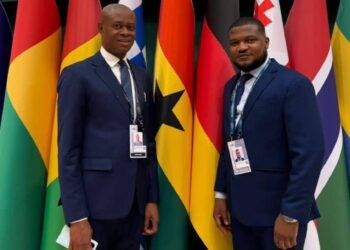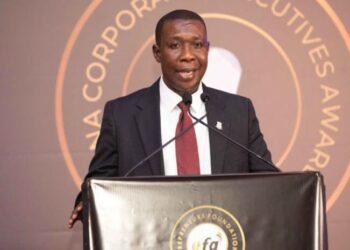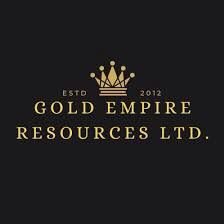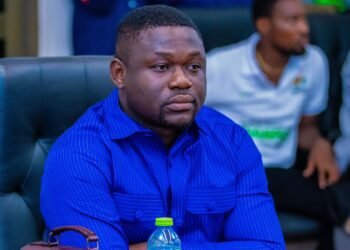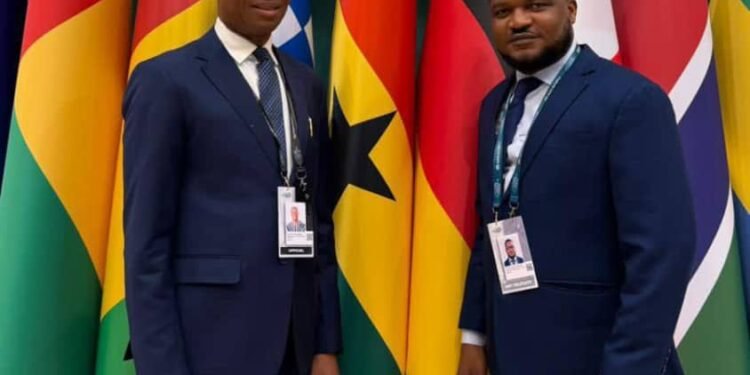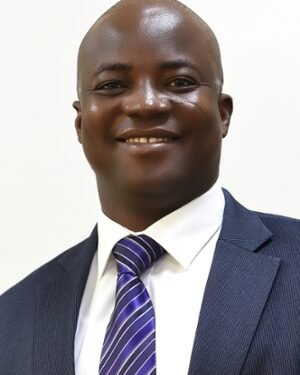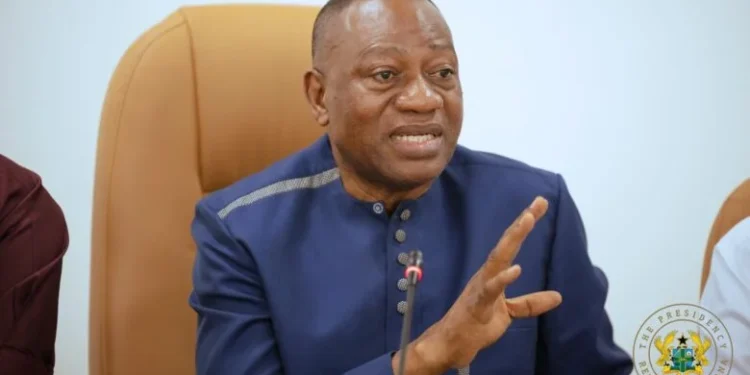The Minister for Finance, Hon. Dr. Cassiel Ato Baah Forson, has inaugurated a 13-member Board of Directors for the newly formed Ghana Gold Board (GoldBod), positioning the institution as a strategic tool for currency stabilization and long-term economic transformation.
The ceremony, held in Accra, marks a significant milestone in President John Dramani Mahama’s vision of leveraging Ghana’s gold wealth to drive national development.
Addressing the Board at their swearing-in, Dr. Forson emphasized the central role of GoldBod in reshaping how Ghana harnesses and benefits from its gold resources, noting that the establishment of the Board followed the successful passage of the GoldBod Bill by Parliament earlier this year.
“This journey began on January 27th, 2025, with the inauguration of the Technical Committee tasked to develop the legal and operational framework.”
Hon. Dr. Cassiel Ato Baah Forson, Minister for Finance
The Technical Committee’s prompt and effective work culminated in the passage of the GoldBod Bill by Parliament at its last session, followed by swift assent from the President.
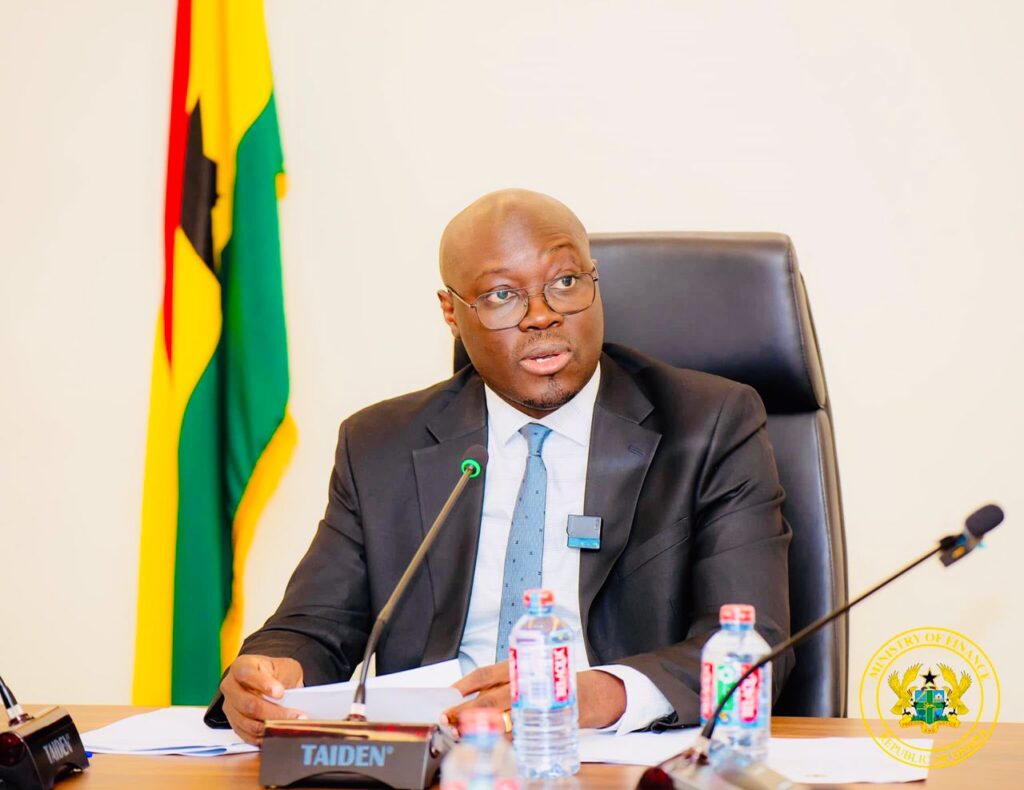
“I must commend the members of the erstwhile Technical Committee and all who played various roles in developing the fit-for-purpose and time-tested GoldBod Act, within record time.”
Hon. Dr. Cassiel Ato Baah Forson, Minister for Finance
The newly constituted board brings together a diverse group of leaders from various sectors.
Among the honorees are key industry representatives such as Mr. Christopher Opoku Nyarko from the Ghana Chamber of Mines, Mr. Godwin Nichelson Armah representing the Ghana Small Scale Miners Association, and Mr. Kwaku Effah Asuahene of the Chamber of Bullion Traders.
Their inclusion ensures that the board’s decisions are informed by frontline experiences in gold extraction and trading.
In addition, the board features esteemed public figures and traditional leaders, including Hon. Shaibu Mahama, Member of Parliament for Daboya/Mankarigu; Dr. Abdul Baasit Aziz-Bamba, a respected legal academic; Ms. Marrietta Brew Appiah-Oppong, Legal Counsel to the President; and Nana Ama Amissah III, the Paramount Queen Mother of the Mankessim Traditional Area.
This blend of perspectives is intended to create a holistic and robust approach to managing Ghana’s gold resources.
New Chapter in Ghana’s Gold Governance

Dr. Forson described GoldBod as a “flagship initiative envisioned by President Mahama” aimed at economic revitalization, particularly through stabilizing the Ghanaian cedi by managing the gold value chain more efficiently.
He stressed that despite being Africa’s top gold producer, Ghana has long failed to fully capitalize on the benefits of the mineral beyond traditional royalties and taxes.
“Historically, Ghana’s revenues from gold have been confined to traditional sources such as royalties and taxes.
“The time has come to go beyond that by optimizing the entire value chain—from extraction to refining, value addition, and marketing.”
Hon. Dr. Cassiel Ato Baah Forson, Minister for Finance
The Gold Board will act as the country’s specialized agency for the structured marketing and management of gold resources, with a mandate to formalize small-scale gold trade, promote traceability, and enhance international acceptability of Ghana’s gold.
Unified, Regulated Framework for Gold Trade

Prior to the GoldBod’s formation, Ghana’s gold marketing landscape was fragmented and poorly coordinated.
Multiple entities—including the Precious Minerals Marketing Company (PMMC), the Bank of Ghana, the Minerals Income Investment Fund (MIIF), and private aggregators—operated independently.
“This fragmented, unregulated system led to widespread gold smuggling and deprived the state of much-needed foreign exchange. But all of this now belongs in the past.”
Hon. Dr. Cassiel Ato Baah Forson, Minister for Finance
He announced that the Ghana Gold Board will now serve as the sole buyer and assayer of gold from the small-scale mining sector and will have exclusive authority to license entities involved in gold trading.
The Minister further noted that the inefficiencies and financial losses suffered by institutions like MIIF in gold buying operations would now be eliminated, as the GoldBod centralizes and streamlines oversight.

The Minister again elaborated on the long-term economic impact of the initiative. Ghana’s vast natural resource wealth includes not only gold but also significant deposits of manganese, bauxite, and other minerals.
Yet, until now, revenue accumulation from these resources has been minimal compared to their potential value. By adopting an integrated approach that covers the entire value chain, the Ghana GoldBod will unlock greater returns for the country.
This move is expected to transform the management of gold from a largely passive revenue stream into a dynamic tool for economic revitalization.
The Ghana Gold Board’s establishment is expected to usher in a new era of accountability, efficiency, and economic empowerment in Ghana’s gold sector, as the nation aims to assert greater control over its mineral wealth while fortifying its macroeconomic fundamentals.
READ ALSO: Cedi Gains Not Enough for Recovery – IERPP Boss Warns Against Overreliance on Global Trends




